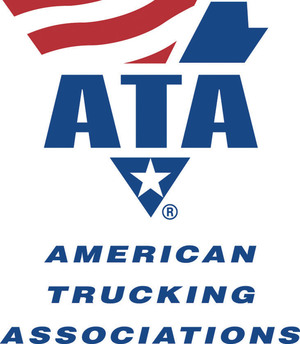
ATA Submits Comments to FMCSA in Support of Texting Ban
ARLINGTON, Va., May 5 /PRNewswire-USNewswire/ -- The American Trucking Associations (ATA) strongly supports the Federal Motor Carrier Safety Administration's (FMCSA) proposal to prohibit commercial motor vehicle drivers from text messaging on handheld devices while driving, ATA said in comments filed May 3 in response to FMCSA's Notice of Proposed Rulemaking (NPRM) in the April 1 Federal Register.
(Logo: http://www.newscom.com/cgi-bin/prnh/20100129/ATALOGO)
"Texting acutely distracts an individual's attention from the primary driving task and can have a profound impact on a driver's awareness and performance," said ATA Vice President for Safety Policy Rob Abbott. "In the interest of improving highway safety, ATA has called on the current administration and Congress to expand the ban on texting to drivers of all vehicles."
In addition to supporting the texting ban, ATA applauded the agency for excluding the use of in-cab fleet management systems, global positioning systems and navigation systems. It is important to distinguish these systems from handheld devices. Potential safety risks, if any, of using these systems are not fully known, and they do offer many safety benefits.
ATA also told FMCSA that motor carriers must not be held accountable for texting violations committed by drivers when the motor carrier neither condoned nor required these acts and could not have prevented them. A motor carrier should not be deemed to have "allowed" a texting offense, or be penalized for a driver's offense, if the motor carrier has taken all reasonable steps to prevent drivers from texting while operating their vehicle, including prohibiting texting under company policy, training drivers on the policy, and progressively disciplining drivers found in violation of the policy.
In October 2008, ATA adopted a policy limiting the use of electronic devices that may distract drivers. ATA supports the safe use of technologies and encourages drivers and/or motor carriers to consider a range of policies and safeguards intended to reduce, minimize and/or eliminate driver distractions that may be caused by the increased use of electronic technologies.
ATA's policy recommends that manufacturers and others adopt awareness, training, and safety policies on the use of such technologies—unless they are already regulated—during the operation of a motor vehicle. Many ATA member fleets have already adopted company policies designed to reduce distractions while driving, and manufacturers of in-cab communication devices have included mechanisms that "lock out" the device or system while the vehicle is in motion.
In October 2009, ATA's 42-member Executive Committee voted overwhelmingly to support the Avoiding Life-Endangering and Reckless Texting by Drivers Act, which would require states to ban texting while driving. The bill defines a hand-held mobile telephone as mobile telephone or other portable electronic communication device with which a user engages in a call or writes, sends or reads a text message using at least one hand. It does not include a vehicle-integrated, voice-activated device.
To view ATA's entire safety agenda, visit www.truckline.com/safety.
ATA's filed comments can be found at http://www.truckline.com/Newsroom/Pages/comments.aspx
The American Trucking Associations (www.truckline.com) is the largest national trade association for the trucking industry. Through a federation of other trucking groups, industry-related conferences, and its 50 affiliated state trucking associations, ATA represents more than 37,000 members covering every type of motor carrier in the United States. Follow ATA on Twitter @TruckingMatters (www.twitter.com/truckingmatters), or become a fan on Facebook (http://tinyurl.com/y4qwp6h).
SOURCE American Trucking Associations





Share this article